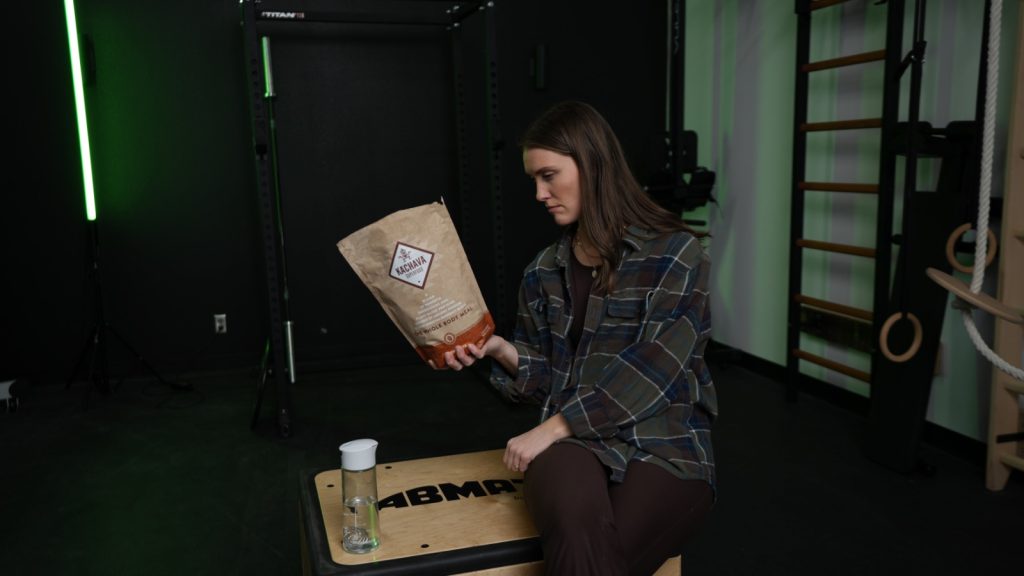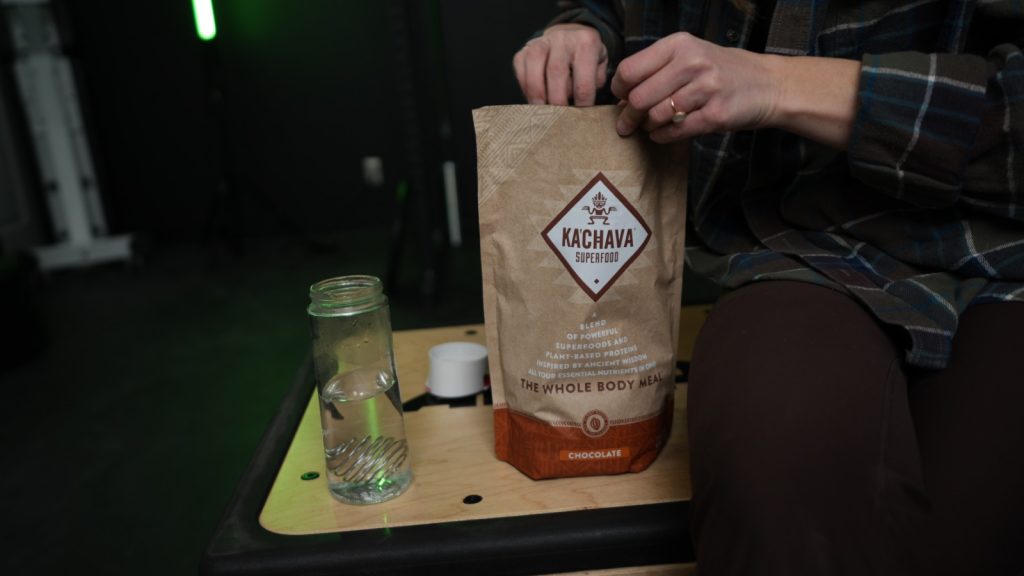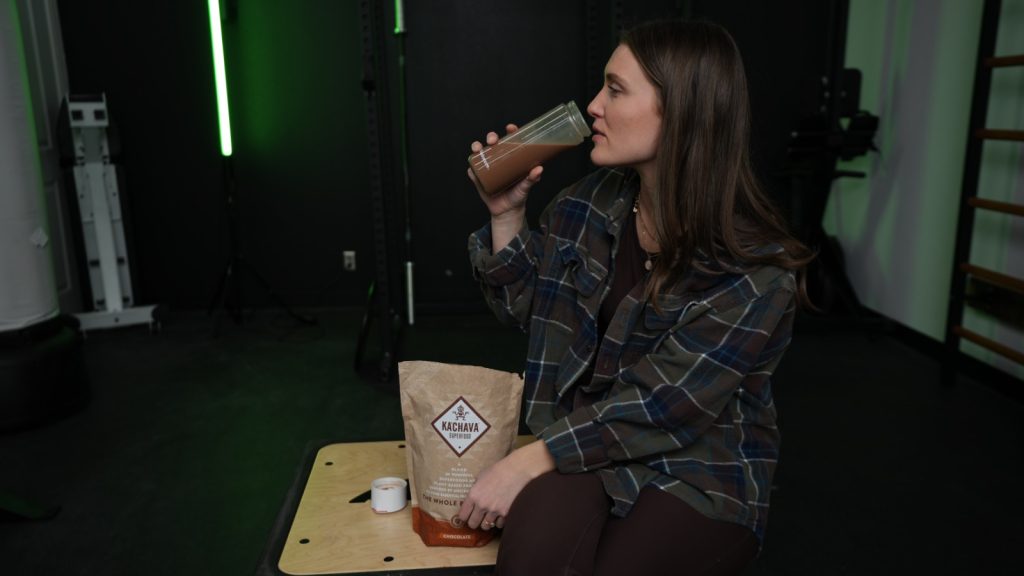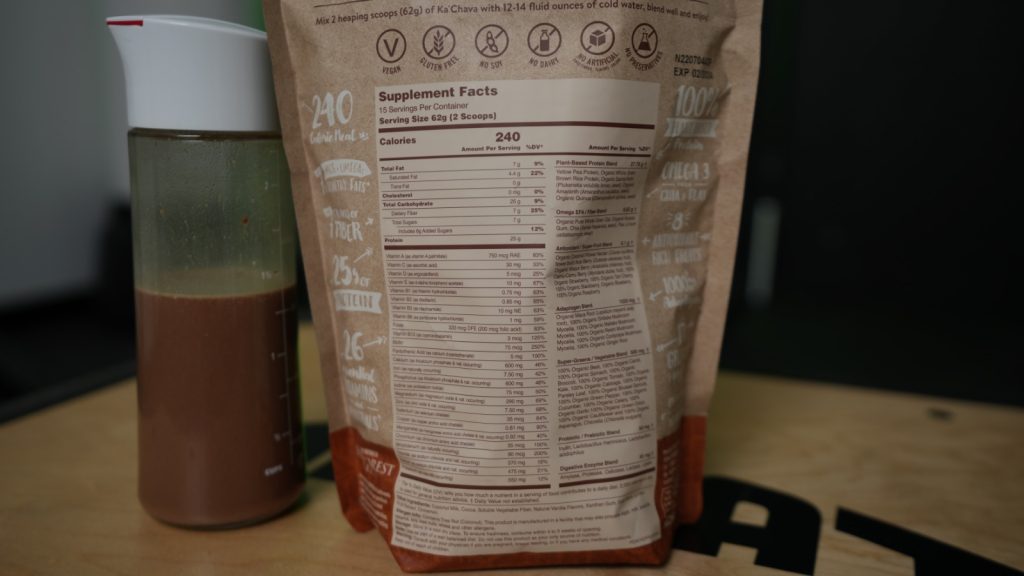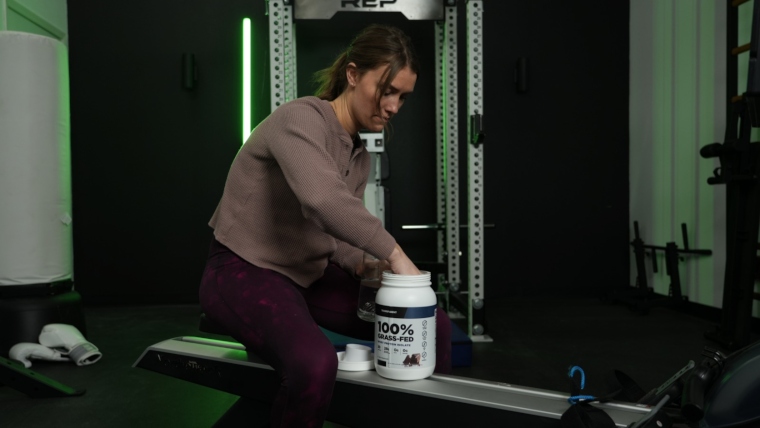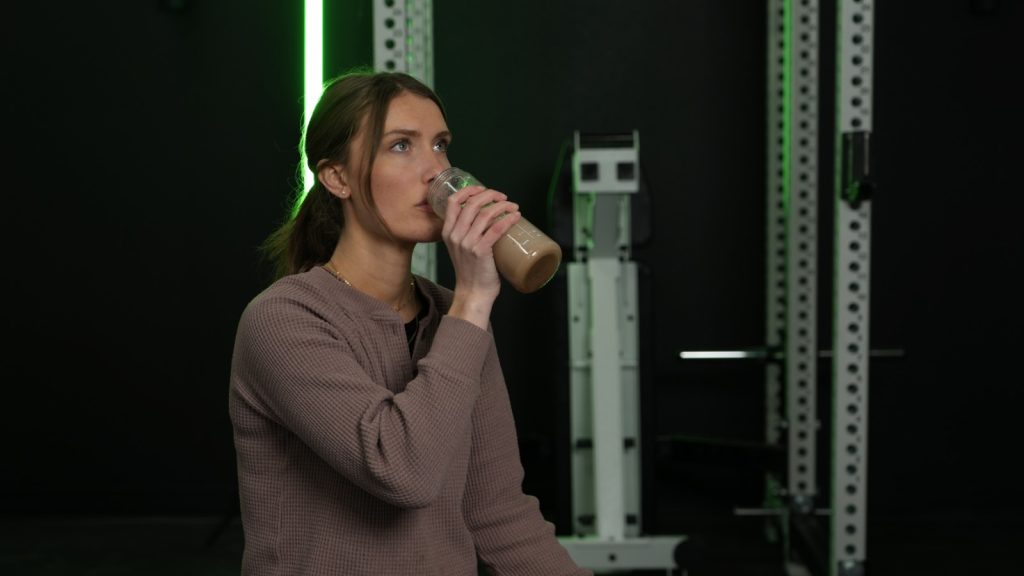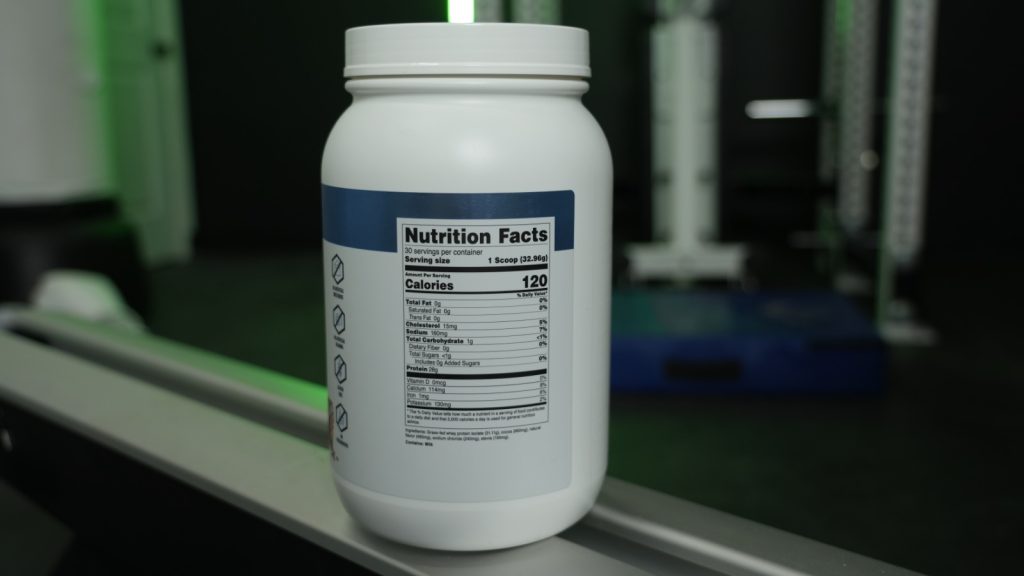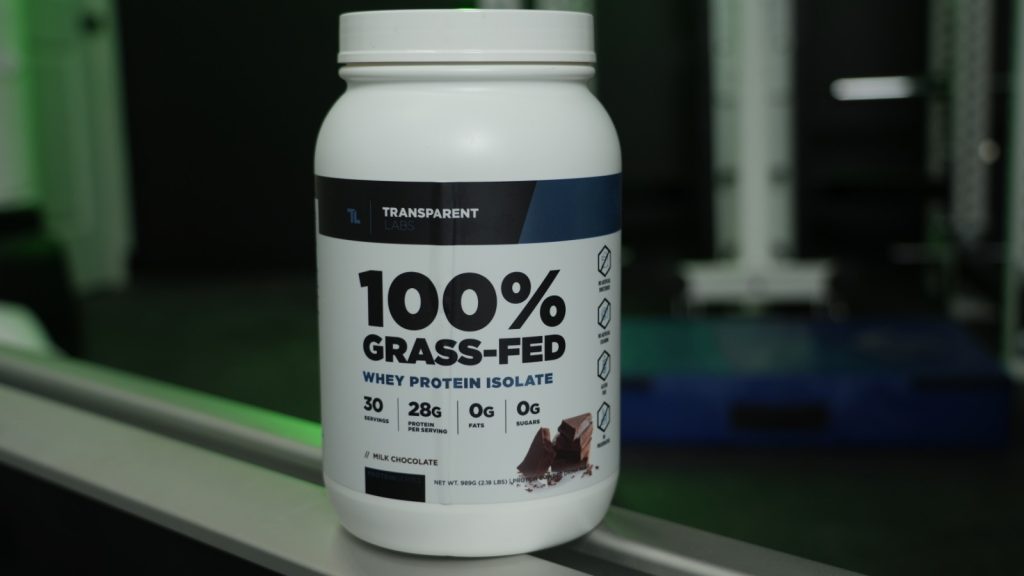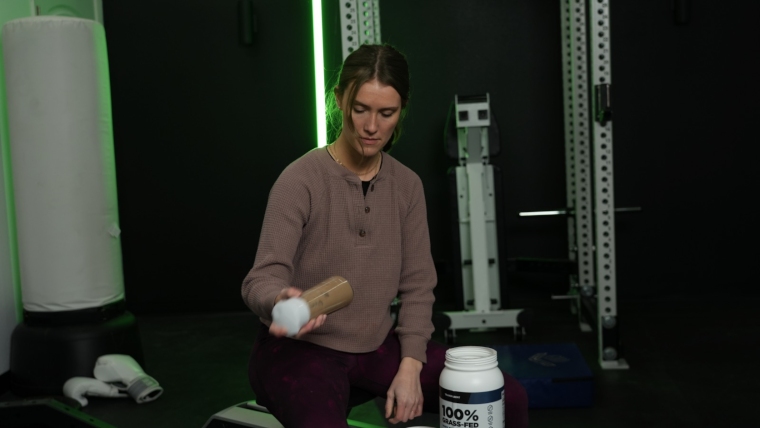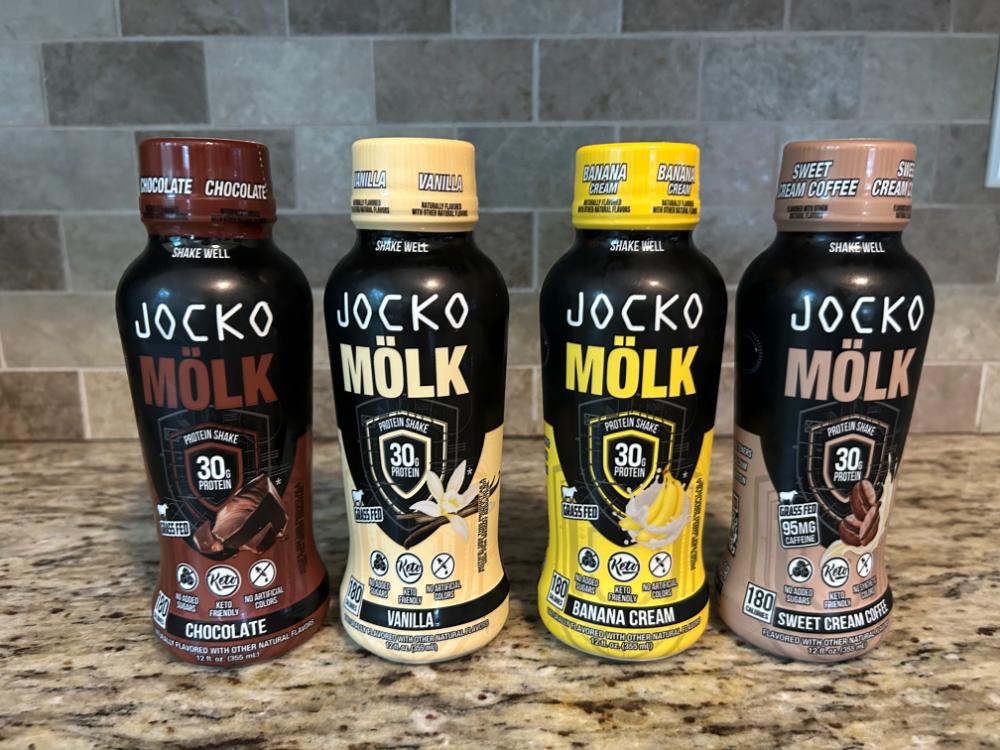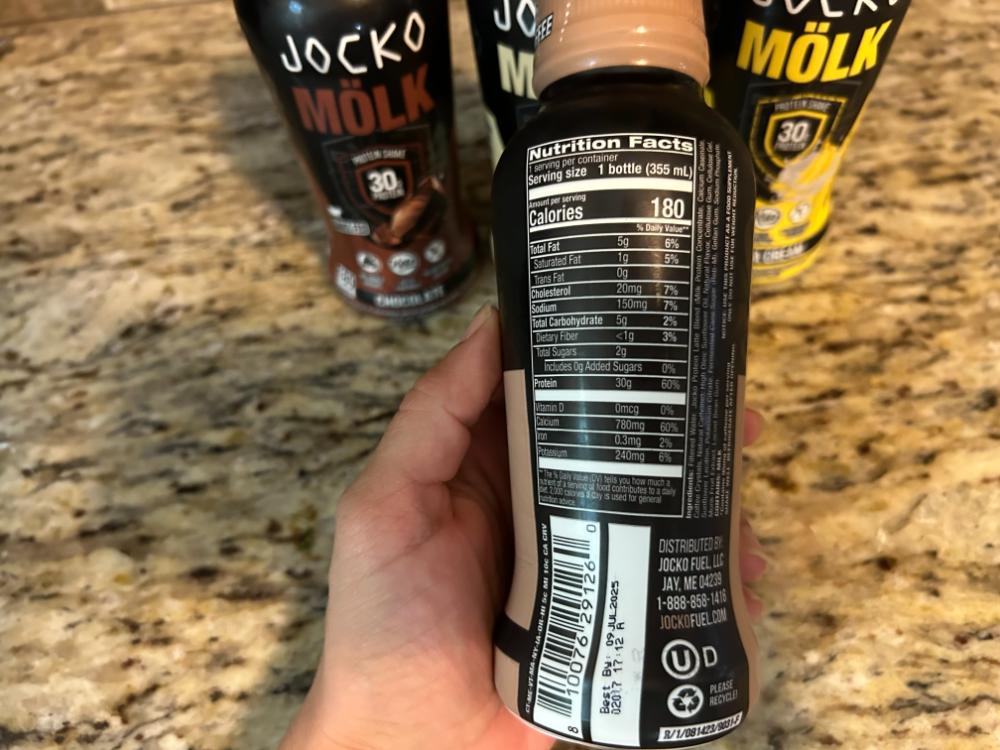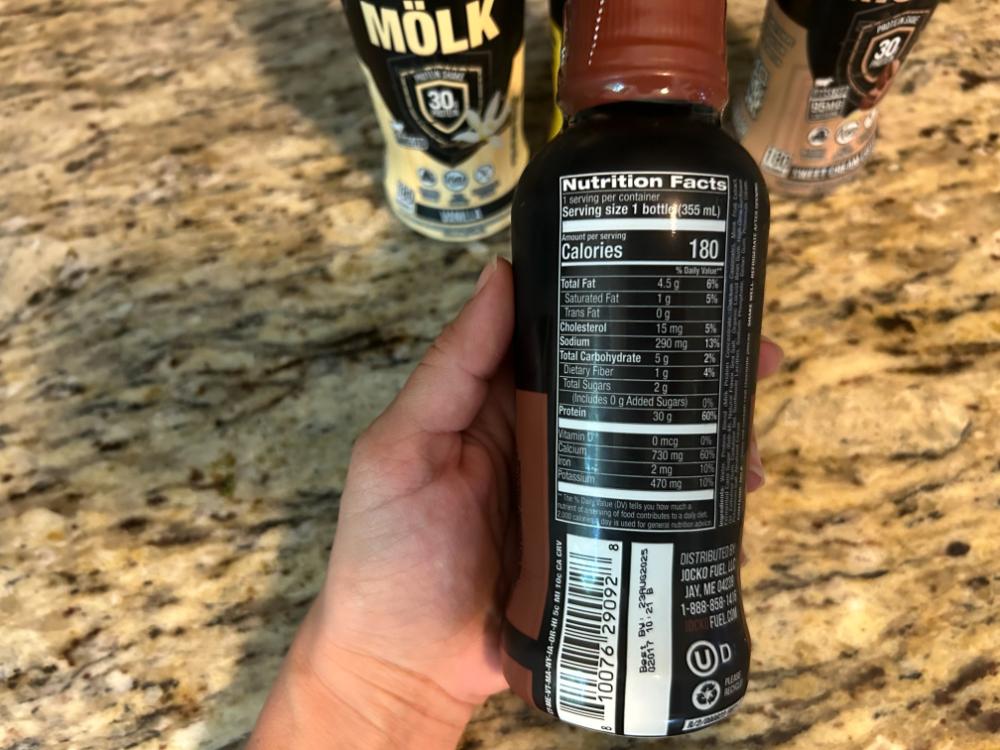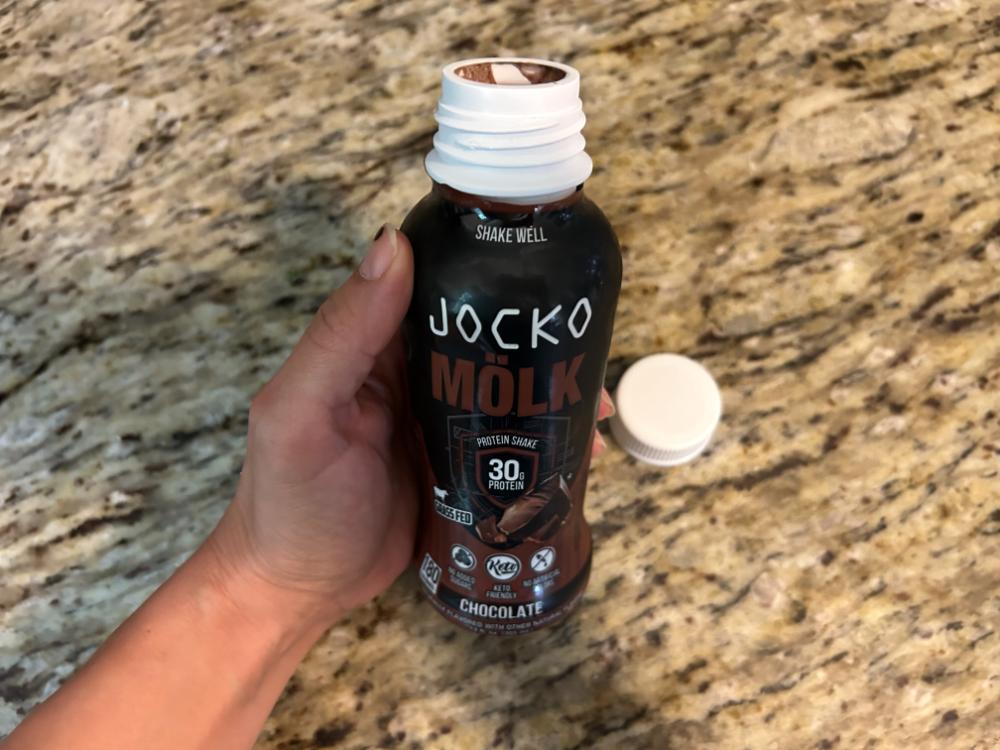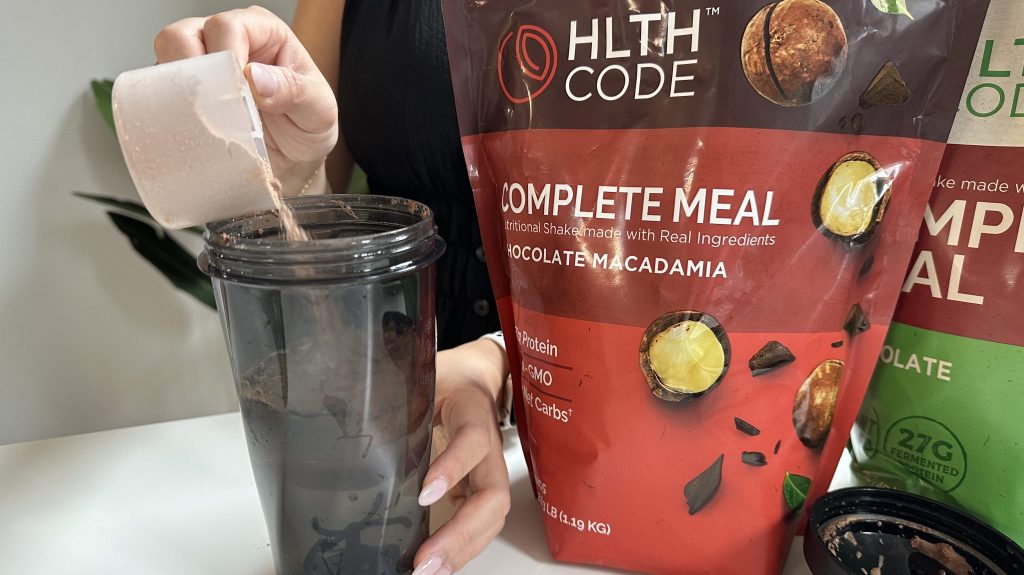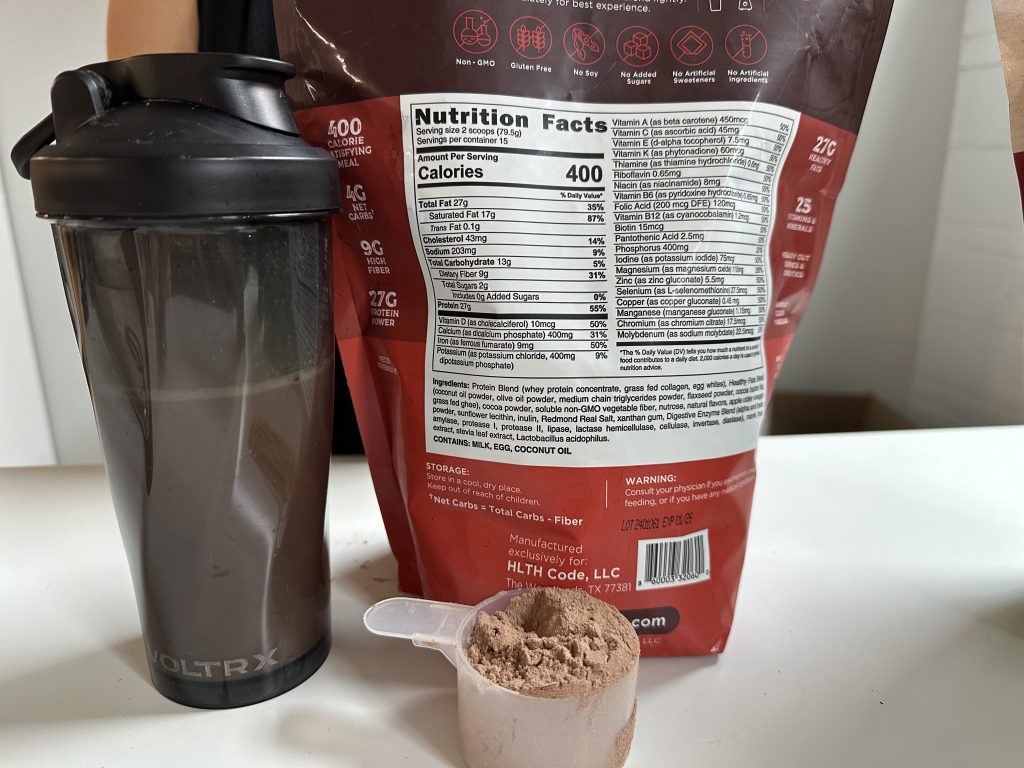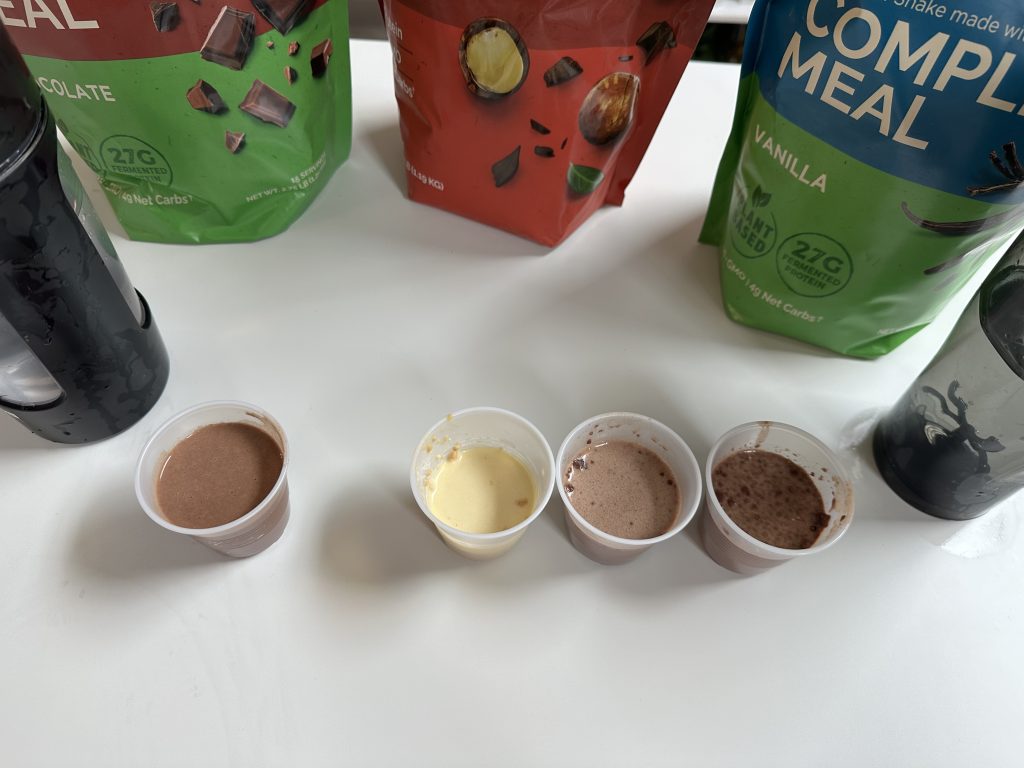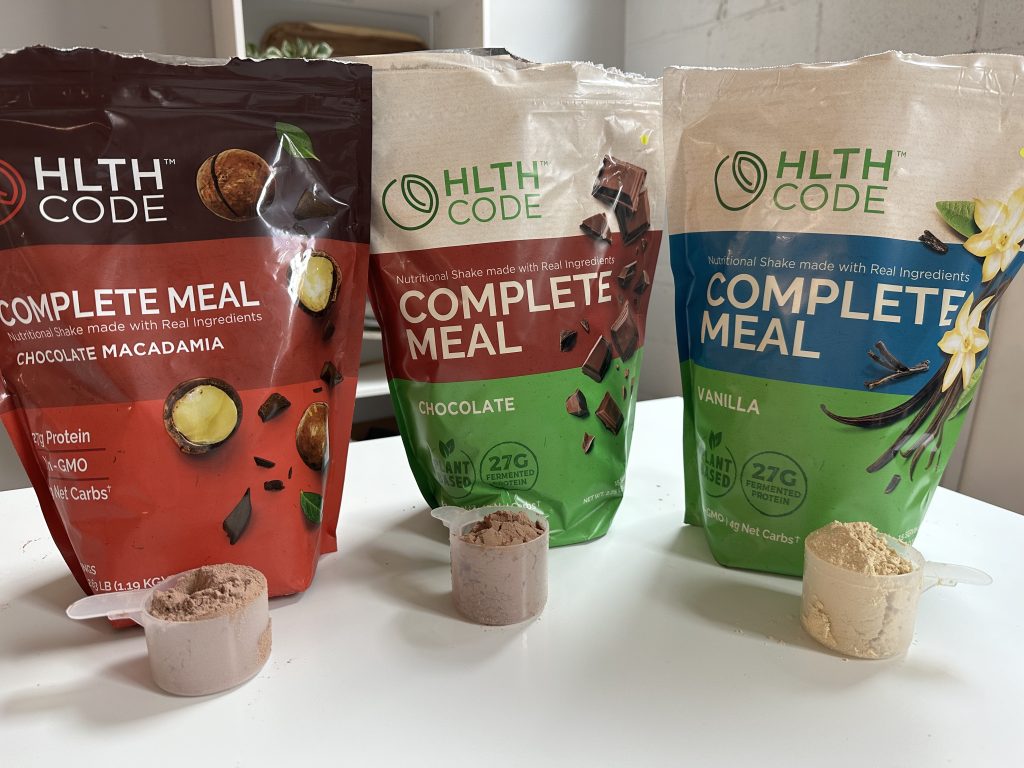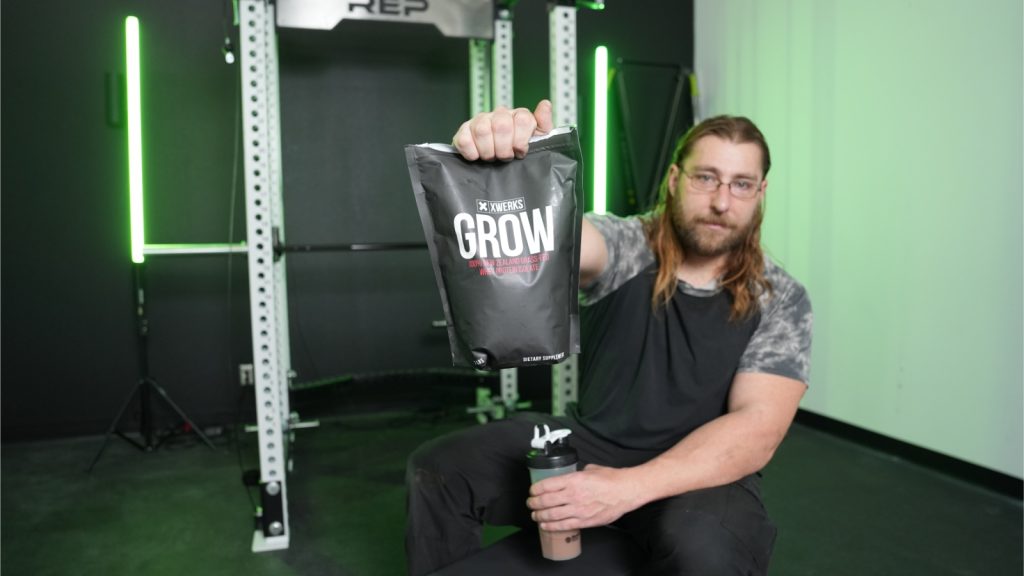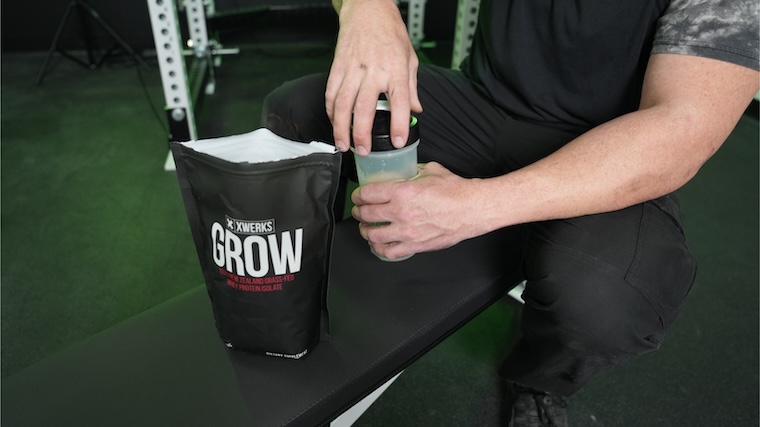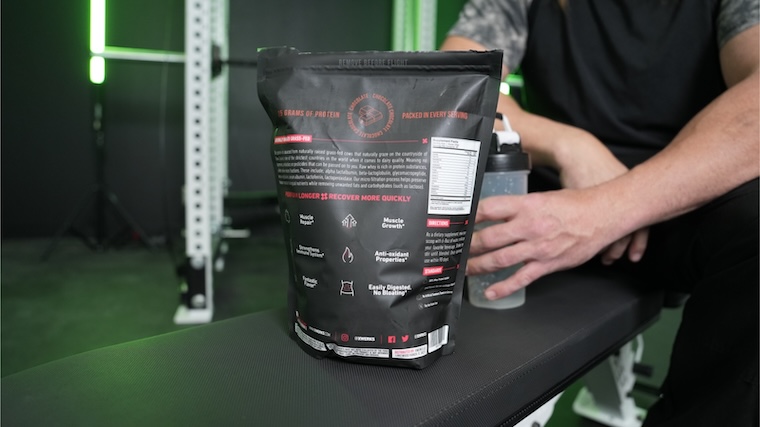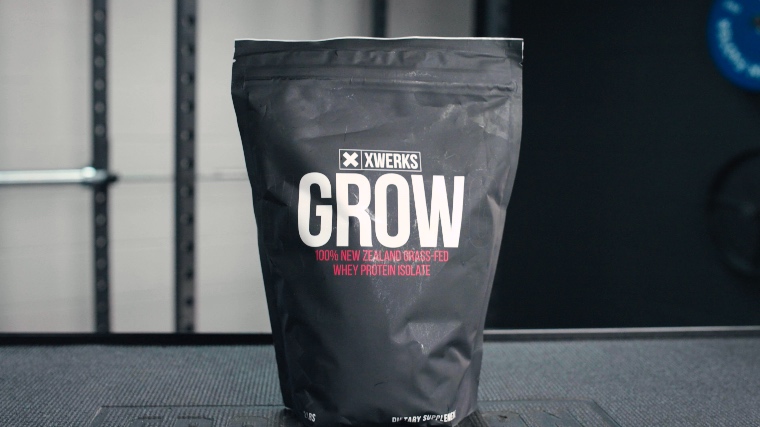Protein is finally getting the recognition it deserves when it comes to muscle growth, weight loss, and enhanced metabolism. Getting enough protein each day to reach your health goals can be challenging, especially for those with muscle building on their agenda. Supplementing with a protein shake is a convenient way to boost your protein intake, enhance recovery post-workout, and stay full between meals. The majority of protein shakes are derived from whey protein, which is highly effective because of its broad amino acid profile. (1)(2)(3) But there are plenty of high-quality plant-based and casein protein shakes on the market worth considering.
With so many different products available, including the best protein powders, finding which to buy is challenging. To make your life easier, our team of BarBend experts tested several products to narrow down the absolute best protein shakes that may support your fitness goals and dietary needs.
The Best Protein Shakes of 2025
- Best Protein Shake Overall: Ka’Chava Whole Body Meal
- Best Protein Shake for Weight Loss: Transparent Labs Grass-Fed Whey Protein Isolate
- Best Protein Shake for Muscle Building: Jocko Molk Protein Shakes
- Best Tasting Protein Shake: Premier Protein Shake
- Best Plant-Based Vegan Protein Shake: Huel Ready to Drink
- Best Meal Replacement Shake: HLTH Code Complete Meal
- Best Protein Shake for Keto: XWERKS Grow
- Best Protein Shakes for Diabetics: Optimum Nutrition Gold Standard Shake
Medical Disclaimer: The content on BarBend is meant to be informative in nature, but it should not be taken as medical advice. The opinions and articles on this site are not intended for the diagnosis, prevention, and/or treatment of health problems. It’s always a good idea to talk to your doctor before beginning a new fitness, nutritional, and/or supplement routine.
Best Overall Protein Shake: Ka’Chava Whole Body Meal
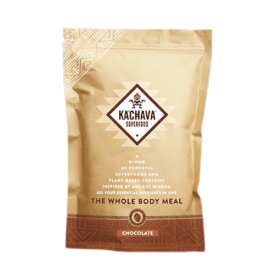
This vegan meal replacement offers various superfood blends that include organic fruits, vegetables, mushrooms, enzymes and probiotics. It totals 240 calories, 25 grams of plant-based protein, 25 grams of carbohydrates (including seven grams of fiber), and seven grams of fat.
Specs
- Protein: 25g
- Available Flavors: Vanilla, Chocolate, Coconut Acai, Chai, Matcha
- Price Per Serving: $4.66 per serving
- Sweeteners Used: Lo Han fruit extract (monk fruit extract)
Ka’Chava Whole Body Meal is a nutrient-packed powerhouse with protein, superfoods, digestive enzymes, probiotics, vitamins, and minerals. It has earned the place of our top pick for best protein shake for its quality protein sources, organic ingredients, and third-party testing.
Many protein powders only contain one type of protein, but this product is made from a combination of several sources of protein, including pea protein, rice protein, amaranth, and quinoa. Together, these plant-based proteins offer all nine essential amino acids, crucial for muscle growth and recovery. Each scoop provides a solid 25 grams of protein, which is plenty to activate muscle protein synthesis.
“I like what Ka’Chava offers with their Whole Body Meal shake. You get a good balance of macronutrients and an impressive list of vitamins and minerals,” says BarBend expert reviewer and registered dietitian nutritionist Chelsea Rae Bourgeois, who scores the formulation a 4.5 out of 5. The nutrients include vitamins A, C, D, and B12, as well as 5.4 milligrams of iron.
We also like the 7 grams of fiber per serving. “It provides a good amount of dietary fiber per serving — yay, gut health!” adds Bourgeois.
“This is one of the best meal replacements and plant-based shakes I’ve tried,” says our product tester, who scored the taste a 4 out of 5. “It has a slightly earthy flavor but barely noticeable, and I didn’t notice too much grittiness, either.
Solubility, meanwhile, scores a 3.5 out of 5. “If you mix this with a countertop blender, there are no issues with solubility. I’d honestly be hesitant to try and mix this powder in a standard shaker cup due to the sheer amount of powder per serving. because you could be in for a workout if you try to mix the two-scoop serving.”
At $4.66 per serving, it’s on the pricier side. However, subscribing reduces the cost to $3.99 per serving. If you’re interested in a more budget-friendly shake, we’d recommend an option from Optimum Nutrition.
Read our full Ka’Chava Meal Replacement Review.
Best Protein Shake for Weight Loss: Transparent Labs Grass-Fed Whey Protein Isolate
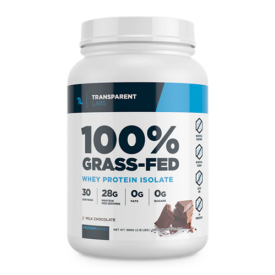
With 8 different flavors and 28 grams of whey protein from hormone-free, grass-fed cows, Transparent Labs Whey Protein Isolate is an excellent way to hit your protein macros.
Specs
- Protein: 28g
- Available Flavors: Milk Chocolate, Vanilla Oatmeal Cookie, French Vanilla, Peanut Butter, Dark Chocolate, Chocolate Peanut Butter, Oatmeal Chocolate Chip Cookie, Unflavored, Strawberry Milkshake, Vanilla Peanut Butter, Mocha, Cinnamon French Toast, Blueberry Pancakes
- Price Per Serving: $2
- Sweeteners Used: Stevia extract
Transparent Labs is known for its commitment to high-quality, natural ingredients without artificial sweeteners, dyes, or additives, and their Whey Protein Isolate is no exception. This protein-rich, low-fat, low-carb shake is an excellent choice for those aiming to build muscle mass and lose weight.
This is one of the best whey protein powders we’ve tested, delivering 28 grams of whey protein isolate per serving. Whey isolate generally offers more protein and less lactose and fat than whey concentrate. Whey protein is also rich in leucine, a branched-chain amino acid that plays a key role in triggering muscle protein synthesis, supporting greater muscle gains. The more muscle you have the more calories you burn at rest, which is beneficial for weight loss.
“This is, without question, one of the best protein powders I’ve had in recent memory,” says our tester, a certified personal trainer. “You get the satiety you want from a mixed shake, there aren’t any negative side effects post-consumption, and the flavors are impeccable. I’d recommend this powder to anyone looking to switch up their supplement regimen. It’s a clear staple in my routine now.”
You’ll find stevia, a natural sweetener, on the ingredients list for this one. “Stevia is my favorite choice for a zero-calorie sweetener since it is all-natural and tastes very similar to cane sugar,” says Dr. Kimberly Langdon, M.D.
Protein shakes sweetened with stevia may be an ideal option for those who want to avoid the gas and bloating that some artificial sweeteners can cause. “I didn’t experience any bloating or stomach rumbles, which was a pleasant surprise as I’ve had other proteins that caused serious GI distress,” says our tester.
Each scoop is only 130 to 150 calories depending on the flavor you choose. No matter which flavor you choose, they are all low in fat and carbs, with fat content ranging from 0.5 to 2.5 grams and carbs ranging from 0 to 3 grams per serving. This is ideal for those wanting to increase their protein intake without ingesting a lot of extra calories from fat and carbs.
Chelsea Rae Bourgeois, our expert reviewer, says, “People who are watching their sodium intake may not like that some flavors contain 370 milligrams of sodium per scoop, which is higher than many other protein powders on the market.” Those in the market for a protein supp light on sodium should check out offerings from brands like Legion and Ritual.
Also, we worked with an accredited, third-party lab to test more than 150 protein powders for accuracy and purity. Transparent Labs landed in the top 25% overall, earning a B. See our results below.

Read our full Transparent Labs Whey Protein Powder Review to learn more. If you’re not sure that this is the right protein for you, consider our review of the Best Protein Powder for Weight Loss for other great options.
Best Protein Shake for Muscle-Building: Jocko Molk Protein Shakes
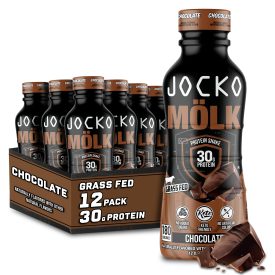
Jocko Molk Shakes feature an impressive 30 grams of grass-fed protein and come in four flavors that our testers love. They also use all-natural sweeteners and ingredients.
Specs
- Protein: 28g
- Available Flavors: Milk Chocolate, Vanilla Oatmeal Cookie, French Vanilla, Peanut Butter, Dark Chocolate, Chocolate Peanut Butter, Oatmeal Chocolate Chip Cookie, Unflavored, Strawberry Milkshake, Vanilla Peanut Butter, Mocha, Cinnamon French Toast, Blueberry Pancakes
- Price Per Serving: $2
- Sweeteners Used: Stevia extract
If you’re looking to add some serious muscle mass to your physique, you’re going to need plenty of protein. Luckily, Jocko Molk Protein Shakes are loaded with 30 grams of protein and make for a convenient grab-and-go post-workout drink. This high protein content not only supports hypertrophy but also aids in recovery, ensuring you’re ready for your next lifting session.
Kate Meier, BarBend editorial member and competitive weightlifter, tested several flavors. “I have had the Chocolate, Sweet Cream Coffee, and Vanilla flavors. They are all so incredibly good. A little sweet, but not overly sweet like, say, Muscle Milk,” she says. Meier scores the taste of these shakes at a 5 out of 5.
We love that this high-protein shake is third-party tested. This ensures they don’t contain banned substances or potentially harmful contaminants. The third-party testing likely contributes to the higher price tag of $3.75 per serving.
“I think the cost of these protein shakes reflects the quality of its ingredients,” says BarBend expert reviewer Chelsea Rae Bourgeois, who scores the formulation a 4 out of 5. “The protein comes from grass-fed cows, free from hormones. Plus, there’s no added sugar, artificial sweeteners, or artificial colors. Jocko Molk Protein Shakes also provide an impressive amount of protein per serving, compared to many of the other pre-made protein drinks out there.”
She does, however, note the high sodium count. “Each bottle contains 290 milligrams of sodium, more than 10% of the recommended daily limit,” she says. “If you’re trying to limit your sodium intake for health and wellness purposes, that takes up a huge chunk of your allotted intake.” If you’re in the market for a low-sodium protein supplement, Huel Ready-to-Drink shakes have 100 milligrams less sodium.
Meier adds, “Keep in mind that the Sweet Cream Coffee flavor has 95 grams of caffeine in it. It’s perfect for me after my morning training sessions as a small pick-me-up, but I wouldn’t take this if I’ve had a lot of pre-workout or coffee before my session.”
Best-Tasting Protein Shake: Premier Protein Shake
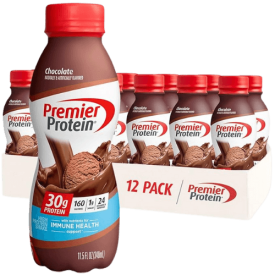
Premier Protein Shakes offer a delicious and nutritious option with 30 grams of protein, only 1 gram of sugar, and 24 vitamins and minerals. Rated 5 out of 5 stars for taste, they are an excellent choice for those who don't want to compromise on flavor while meeting their protein intake goals.
Specs
- Protein: 30g
- Available Flavors: Chocolate, Vanilla, Strawberry, Caramel, Banana, Cafe Latte, Chocolate Peanut Butter, Cinnamon Roll, Cookie Dough, Cookies & Cream, Mint Chocolate, Peaches & Cream, Pumpkin Spice, Root Beer Float, Strawberries & Cream
- Price Per Serving: $2.53
- Sweeteners Used: Sucralose, Acesulfame Potassium
Premier Protein shakes offer a nutrient-dense, high-protein snack option for when you need something quick. With 15 delicious flavors to choose from, you’re sure to find one that suits your taste.
Our tester scores its flavor a 5 out of 5, saying, “I LOVE these! The vanilla tastes like a milkshake and the chocolate is just like chocolate milk. They’re the perfect amount of sweetness.” Needless to say, Premier Protein is on par with many of the best-tasting protein powders we’ve tested.
“As much as I love to prioritize whole foods in my diet, sometimes convenience foods are necessary. Life is busy, am I right?” says BarBend expert reviewer Chelsea Rae Bourgeois, a registered dietitian nutritionist “These Premier Protein Shakes can be good when you need to increase your protein intake on the go. Their 30 grams of protein per bottle is pretty impressive, as is their vitamin and mineral profile.”
The shake’s 24 essential vitamins and minerals include vitamin D, iron, vitamin A, vitamin E, and magnesium. These nutrients can play key roles in vision, bone strength, healthy red blood cell production, and muscle function.
Bourgeois does, however, ding it a few points for its sodium count and use of artificial sweeteners like sucralose and acesulfame potassium. “The macronutrient ratio favors a fairly lean protein shake, but you still get a good bit of sodium in every serving. Plus, it’s sweetened with artificial sweeteners,” she says, scoring the formulation a 3.5 out of 5.
If you’re uncomfortable with this shake’s use of artificial sweeteners, we’d recommend checking out an organic option like Ka’Chava.
Each bottle costs $2.53, which is mid-range compared to others on our list. “You can save a bit of cash mixing up your own shakes at home, but I love these for an on-the-go option,” says our tester, scoring the value a 3.5 out of 5.
Best Plant-Based Vegan Protein Shake: Huel Ready to Drink
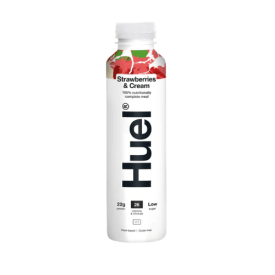
Huel Ready-to-Drink Protein Shakes offer a balanced macronutrient profile with 17 grams of fat, 30 grams of carbs, and 35 grams of protein, making them ideal for meal replacements. These shakes also include a micronutrient blend of 27 essential vitamins and minerals and 6 grams of dietary fiber, providing comprehensive nutrition to support weight loss.
Specs
- Protein: 20-22g
- Available Flavors: Chocolate, Vanilla, Strawberry, Cinnamon Roll, Salted Caramel, Iced Coffee Caramel, Berry, Banana
- Price Per Serving: $5.54
- Sweeteners Used: Coconut sugar, sucralose
Huel Ready to Drink is a good vegan protein source with omega-3s and 27 essential vitamins and minerals. “Huel has harnessed the powers of various vegan-friendly ingredients to produce a nutrient-dense, ready-to-drink nutrition shake,” says BarBend expert reviewer Chelsea Rae Bourgeois, a registered dietitian nutritionist.
With up to 22 grams of protein, 400 calories, and a wide array of vitamins, minerals, fiber, and phytonutrients, a single bottle could serve as a meal replacement, though Bourgeois recommends it only in a pinch. “While it’s calorically dense, it’s important to remember that relying on it as a meal replacement may not be ideal on a regular basis,” she says, scoring the formulation a 3.75 out of 5. “I think Huel shakes can be helpful on occasion for some. However, their calorie to protein ratio may not be ideal for everyone.”
Bourgeois does, however, love that this shake contains medium-chain triglyceride powder sourced from coconut. “While research on human subjects is extremely limited, some studies indicate that supplementing a regular diet with medium-chain triglycerides may offer cognitive benefits,” she notes. It’s also low in sugar and high in fiber — in fact, a single bottle can contain up to 8 grams of fiber, which is 29% of the recommended daily value and on par with many high-fiber foods.
Since this shake can double as a meal replacement, is it pricey at roughly $5.50 a bottle. Our tester scores its value a 3 out of 5, saying, “I think it’s important to keep in mind that this is a complete meal replacement drink high in calories, all macros, and micros, so the price is easier to justify. Just know that this isn’t the best option for someone looking for JUST protein.”
In terms of taste, they score it a 4 out of 5. “I found the texture to be SUPER thick, to the point where your mouth is sticky,” our tester says, recommend that you refrigerate and shake it vigorously before sipping.
Best Meal Replacement Shake: HLTH Code Complete Meal
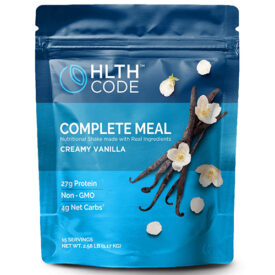
HLTH Code is delicious, offers 27 grams of protein with 400 calories, and contains up to 25 vitamins and minerals. It's also insanely satiating, which means you're getting a lot of bang for your buck with each serving. Save 15% with code BARBEND.
Specs
- Protein: 27g
- Available Flavors: Creamy Vanilla, Chocolate Macadamia
- Price Per Serving: $4
- Sweeteners Used: Stevia leaf extract, monk fruit extract
The 27 grams of protein in this shake come from a blend of whey, egg white, and collagen proteins. Unlike most protein shakes, this one includes collagen, which supports the health of your skin, joints, bones, hair, and nails. Whey and egg white protein are both complete proteins with all the essential amino acids important for muscle building and recovery.
“This keto-friendly shake doesn’t contain any added sugar. It uses low-glycemic monk fruit extract and stevia,” says Chelsea Rae Bourgeois, our expert reviewer. She also likes that it contains heart-healthy omega-3 polyunsaturated fatty acids, but notes that it is lower in carbs and higher in saturated fat than she’d like for a meal replacement. If you’re interested in a meal replacement with a more balanced macro count, we recommend checking out Ka’Chava’s Whole Body Meal shake.
Also of note are the added probiotics, digestive enzymes, and fiber. Probiotics, the beneficial bacteria in your gut, help maintain a balanced microbiome, important for strong immune function and digestion. The inclusion of inulin, a prebiotic fiber, supports these probiotics by providing the nourishment they need to thrive. Digestive enzymes in the shake aid in breaking down protein, fat, and carbs into smaller molecules, enhancing nutrient absorption.
“The taste was fine,” says BarBend team member Thu Le, who scores the flavor a 4 out of 5. “The HLTH code Vanilla flavor was very sweet and strong. Since I’m not a fan of sweets, I prefer the Chocolate and Chocolate Macadamia flavors.”
Le does note, however, that solubility can be an issue, saying that she scored the category a 1 out of 5 when using a shaker bottle but a 5 out of 5 in a blender. “After shaking vigorously in the blender bottle, there were still chunks in the shake. The texture and consistency are very thick and did not mix smoothly. But using it in the blender bottle helped a lot with solubility and texture and it went down a lot better.”
Best Protein Shake for Keto: Xwerks Grow
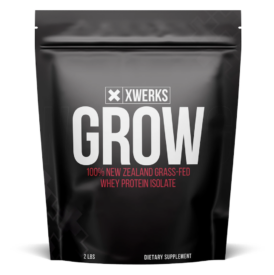
One of the very few protein powders with no carbs or fat whatsoever, this product contains 25 grams of whey protein isolate and is great for anyone looking for a leaner protein option.
Specs
- Protein: 23-25g
- Available Flavors: Chocolate, Vanilla, Peanut Butter, Strawberry
- Price Per Serving: $1.97
- Sweeteners Used: Stevia
If you’re on the keto diet, you’ll want a protein powder that’s low in carbs. XWERKS Grow meets this need perfectly, with just 1 gram of carbohydrates per serving. This low-carb content may help your body tap into fat stores for energy, rather than relying on ingested carbs.
A single scoop of Xwerks offers 23 to 25 grams of whey protein isolate, Whey protein isolate is super filtered to remove fat and lactose (a type of carb), ensuring you get a highly concentrated protein source without the extra carbs. This protein also delivers 6 grams of branched-chain amino acids (BCAAs), including leucine, which is especially important for stimulating muscle protein synthesis.
With no added or artificial sugar, the protein powder utilizes stevia for sweetness. “Xwerks Grow scores a 4.5 out of 5 for its formulation, with high marks for its protein content and natural sweeteners,” says Chelsea Rae Bourgeois, our expert reviewer.
The product comes in four flavors, including Chocolate, Vanilla, Strawberry, and Peanut Butter. “This is among the most flavorful protein powders I’ve ever tried,” our tester, a certified personal trainer, says. “The chocolate tastes just like protein chocolate milk. Need I say more?” It was a no-brainer to rate it a 5 out of 5 for flavor.
Our tester was also impressed by this product’s solubility, scoring it a 5 out of 5. “Mixing isn’t really an issue at all — I barely needed a blender ball,” they say.
We do, however, wish Xwerks provided the peace of mind that comes with third-party testing. There’s none to speak of here, which is why we score the category a 1 out of 5. If the stamp of approval from a third-party is important to you, we’d recommend checking out offerings from Transparent Labs, Legion, or other options on our recommendations for the best keto protein powders.
Read our full Xwerks Grow Whey Protein Review.
Best Protein Shakes for Diabetics: Optimum Nutrition Gold Standard Shake
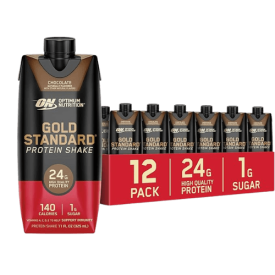
Optimum Nutrition offers a cost-effective protein drink at $1.66 to $1.75 per serving, making it the cheapest option on our list while still providing 24 vitamins and minerals, and 24 grams of protein, including essential amino acids and BCAAs. Despite its low price, it doesn’t skimp on quality and received high marks for taste and nutritional quality.
Specs
- Protein: 24g
- Available Flavors: Chocolate, Strawberry, Vanilla
- Price Per Serving: $2.12
- Sweeteners Used: Sucralose, acesulfame potassium
Optimum Nutrition Gold Standard Shake makes consuming more protein easy while on the go. Its high protein and low sugar content may make it a great protein shake for diabetics who are trying to manage their blood sugar. A high-protein diet may help stabilize blood sugar by slowing down the digestion and absorption of carbohydrates, potentially preventing rapid spikes in blood sugar.
Chelsea Rae Bourgeois, our expert reviewer, states, “I like that this product contains 24 grams of protein, including a good amount of BCAAs and EAAs, and it’s also low in carbs with 1 gram of sugar.”
The 24 grams of protein comes from a blend of quick and slow absorbing protein sources, including milk protein isolate, milk protein concentrate, whey protein concentrate, and calcium caseinate. “I didn’t like that it didn’t disclose how much of each protein is in the protein blend. It also contains some artificial ingredients like sucralose and acesulfame potassium,” Bourgeois says. This brought the formulation score down a notch, leading us to rate it a 4 out of 5. If you’d rather try a protein free of artificial sweeteners, we’d recommend offerings from brands like Legion and Ritual.
Furthermore, this shake is loaded with 24 vitamins and minerals, which could help you fill nutrient gaps in your diet. It includes key nutrients like vitamin C, vitamin E, and selenium, which may help reduce inflammation — a common issue for those with diabetes.
At $2.12 per serving, Optimum Nutrition Gold Standard Shakes are pretty affordable. If you want a high protein shake that could help manage diabetes without spending a fortune, these could be a good choice.
[Related: Best Optimum Nutrition Flavors]
Taste Test: How We Ranked the Best Protein Shakes
To make sure we’re bringing you the best insights possible into how to stock your fridge, our team got together for a blind taste test of the top-ranked chocolate protein shakes. None of us who were tasting and voting knew which protein shakes we were pouring into our cups. Here’s how it went.
Best Chocolate Protein Shakes
| Premier | 1 |
| Jocko | 2 |
| Huel | 3 |
| Optimum Nutrition | 4 |
The mission for our first test: to determine, unbiased by brand preferences, which chocolate shake came out on top. Almost our entire team voted to put Premier — or, as we called it, Anonymous Chocolate Shake Numer 4 — in the top slot (the outliers voted to put it at number two). My teammate saying, “I can drink this every day” definitely reminded me of the old Goldfish kindle — and pretty much the whole team concurred. Coming in at number two is Jocko, which one of our team members affectionately dubbed “straight-up chocolate milk.”
While the team found Optimum Nutrition to be a little thin, Huel was the opposite experience: “She’s thick!”, one of my teammates declared, with another calling it “melted fudge popsicles.” Works for us.
Best Unique-Flavored Protein Shakes
| Premier Chocolate Peanut Butter | 1 |
| Jocko Sweet Cream Coffee | 2 |
| Premier Pumpkin Spice | 3 |
| Huel Salted Caramel | 4 |
| Optimum Nutrition Vanilla | 5 |
We couldn’t help ourselves — we also had to test our fun flavors separately (it’s not fair to compare anything to chocolate). This time, our team had cups labeled one through five for flavor and brand anonymity (don’t worry: we worked out a system where we minimized cup waste).
Not knowing what flavors or brands we were drinking, Premier still swooped in for the top spot, this time with its Chocolate Peanut Butter flavor. “It’s liquified Reeses,” one of my teammates declared, and to be honest, they sounded a little dreamy about it (who can blame them?). Jocko was next again, this time for its Sweet Cream Coffee flavor. It was super easy to identify what it tasted like: “Oooh, this one’s coffee,” our resident coffee fiend proclaimed excitedly.
Premier came in third for its Pumpkin Spice flavor, which everyone agreed was tasty, but didn’t exactly taste true-to-label. “It’s like a gingerbread house imposter,” someone said, with the vibe of someone giving a confused compliment. Most teammates also thought it tasted like Cinnamon Toast Crunch: not Pumpkin Spice, sure, but still delicious.
Pulling up the rear were Huel’s Salted Caramel, which our team equated to a thin cake batter flavor, and Optimum Nutrition’s Vanilla, which was also pretty thin — this time, our team commented that it was like the milk at the bottom of a bowl of cereal, “in a good way.”
Other Protein Shakes We’ve Tested
Our team has used dozens of pre-made protein shakes and nearly 100 protein powders to evaluate what we think is the best. Some additional shakes we have tried (and some we liked!) include:
- Quest Nutrition Ready to Drink Protein Shake: These shakes pack a whopping 30 grams of milk protein per carton. We like that they are low in carbs (4 grams) and sugar (1 gram). The price is great too at only $1.86 per shake.
- Ample Low-Carb Meal Shake: This is a complete meal replacement protein shake that provides 400 calories and 25 grams of protein. The fiber content (7 grams) of this one is hard to beat. Also includes added vitamins, minerals, probiotics, and digestive enzymes.
- Orgain Organic Protein Shake: This product is USDA Organic certified and provides 26 grams of protein per serving. It includes erythritol, a sugar alcohol that may cause digestive issues such as bloating and gas in some people.
How We Tested and Chose the Best Protein Shakes
Protein shakes are booming in the supplement industry, so narrowing down the best options was quite the task. Using the BarBend supplement testing methodology, we scored each product we tested on a scale of 1 (boo) to 5 (yay) in areas such as taste, price, and formulation. Below are some of the key factors we considered when making our top picks.
- Protein Per Serving: Protein should be the main ingredient in a protein shake. We prioritized products that offered at least 20 grams of protein per serving, enough to stimulate muscle protein synthesis for most individuals.
- Macros: We included products with varying macronutrient profiles, from those with high protein and low carb and fat content to options with higher fat and carbs. Our choices cater to those focused solely on boosting protein intake as well as those looking for a more comprehensive recovery drink.
- Calories: We intentionally included protein shakes with a range of calories per serving. Protein shakes higher in fat and carbs typically have a higher calorie count while those with primarily protein are lower in calories. Whether you’re looking to cut calories or want the extra energy to refuel after a training session, we’ve got you covered.
- Price: Most of the protein shakes on our list range from $1.50 to $4.50 per serving. We’ve included options to suit both tight budgets and more flexible spending.
- Taste: If you’re going to incorporate it into your routine consistently, it needs to taste good. Knowing the flavor is subjective (and can even be influenced by brand knowledge and knowing what flavor something is labeled with), our team did a couple of blind taste tests to really bring a unique spin to our analysis.
[Related: Protein Intake Calculator]
What to Consider Before Buying Protein Shakes
When shopping for the best protein drink, there are numerous factors to consider, including protein content, ingredients, and your specific training goals. Here are some key pointers to keep in mind before making your purchase.
Protein Content
Consider protein shake options with 20 to 40 grams of protein per serving, as this is the amount needed to stimulate muscle protein synthesis for building and repairing muscle mass. All of the shakes on our list contain at least 20 grams per serving.
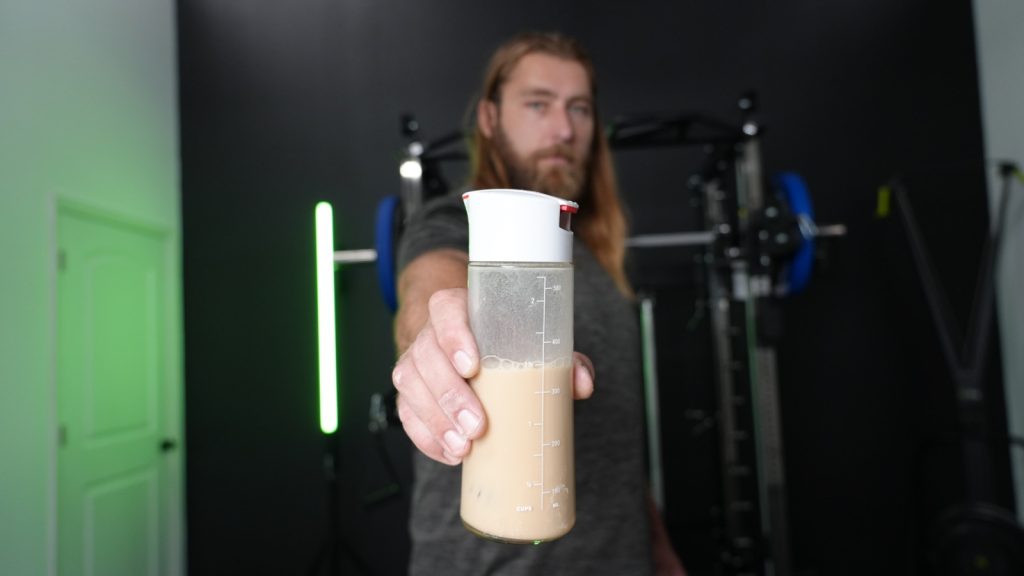
Also, think about the type of protein in each product. Whey protein is popular for muscle building because it is a quick absorbing protein with the highest leucine content. For nighttime recovery, casein protein is a better choice as it digests slowly, providing a steady release of amino acids while you sleep. Plant-based options, such as pea and soy protein, offer all nine essential amino acids to support muscle recovery and growth.
“Another important factor to consider when choosing a protein shake is its satiety rating, which is how satisfied or full you feel after ingesting the shake and for how long the feeling lasts,” Dr. Kimberly Langdon, M.D., points out.
Ingredients
Protein shakes often contain more than just protein, so it’s important to review the other ingredients on the label. Many people prefer shakes made with all-natural ingredients and without artificial sweeteners, colors, or additives. Some products offer additional benefits with digestive enzymes, probiotics, fiber, and superfoods, which can support immune and digestive health. If your diet lacks variety, consider shakes that include a blend of vitamins and minerals to help cover any nutritional gaps.
Training Goals
Everyone has different protein needs. While most probably think about muscle building when it comes to protein shakes, they can serve a variety of purposes depending on what you’re trying to accomplish in the gym. For example, bodybuilders often prioritize a higher consumption of carbs and fats relative to protein when in the off-season as a bulking strategy. As a result, a protein shake with other macronutrients included may be more appropriate as a means to reach their overall dietary goals during their prep.
On the flip side, an endurance runner trying to cut weight for a competition may want to increase their protein intake to sustain muscle mass and reduce their consumption of other macros to promote weight loss. This person would probably benefit from a whey isolate protein shake with very high protein content and lower fat and carb content. As you can see, your choice will be best suited for why you want to increase your total protein intake in the first place.
Intolerances
Most protein shakes contain whey protein, which may not be suitable for those with a milk allergy or a lactose intolerance. To ease digestive discomfort, many products, including some on our list, use digestive enzymes or are lactose-free or dairy-free, like plant-based protein shakes.
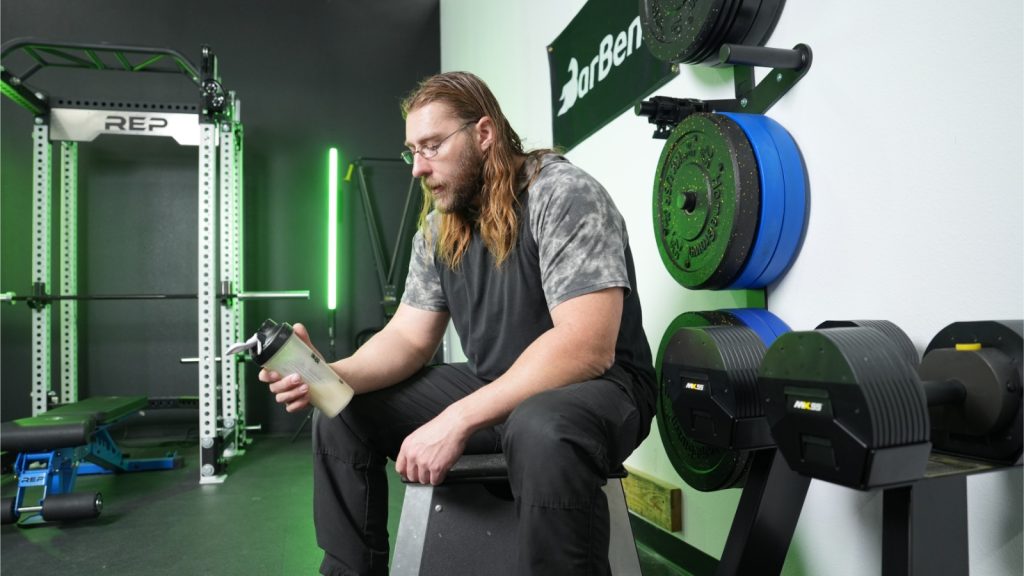
For those avoiding dairy entirely, vegan protein shakes are a good alternative. Check the label to ensure the product is free of food allergens or other ingredients you might be intolerant to.
Benefits of Protein Shakes
Protein shakes, like other protein supplements, are designed to complement a whole foods diet by boosting your overall protein and nutrient intake. Beyond simply increasing your protein consumption, these shakes provide numerous additional benefits.
- Supports muscle growth: Tons of bodybuilders drink protein shakes to supply their muscles with the amino acids necessary for muscle growth. Amino acids are the building blocks of protein, crucial for preventing muscle wasting and supporting the development of new muscle tissue.
- Aids in muscle and workout recovery: Muscle fibers are damaged during intense training sessions. The amino acids in protein help the body repair and rebuild muscle. Adequate protein intake may even reduce delayed onset muscle soreness.
- Promotes weight loss: A high-protein diet can help boost your metabolism so you burn more calories throughout the day. Protein helps preserve muscle mass during weight loss and requires more energy (calories) to digest compared to other macronutrients. Additionally, protein is filling, which may reduce overeating and help with appetite control.
- Aids in blood sugar management: Consuming protein helps slow the digestion and absorption of carbs, reducing rapid increases in blood sugar.
- Increases nutrient consumption: Aside from protein intake, lots of protein shakes contain additional nutrients like fiber, vitamins, and minerals.
- Convenience: Getting enough protein each day can be challenging, especially for those wanting to build muscle. Protein shakes offer a convenient way to increase your intake that doesn’t require cooking or meal prepping.
How Much Do Protein Shakes Cost?
Depending on what you’re looking for, protein shakes come with a wide range of price tags. The higher-priced shakes will likely include added micronutrients and boast a higher overall nutritional value, while the lower-priced shakes may just pack the macros you’re looking for, and act more as a snack than a meal. The prices listed below are for either a tub of protein powder or a package of pre-made protein shakes (usually containing 12 shakes).
| Best Protein Shake Overall | Ka’Chava Whole Body Meal | $59.95 |
| Best Protein Shake for Weight Loss | Transparent Labs Whey Protein Isolate | $59.99 |
| Best Protein Shake for Muscle Building | Jocko Molk Protein Shake | $44.95 |
| Best-Tasting Protein Shake | Premier Protein Shake | $30.38 |
| Best Plant-Based Vegan Protein Shake | Huel Ready to Drink | $53 |
| Best Meal Replacement Shake | HLTH Code Complete Meal | $59.95 |
| Best Protein Shake for Keto | XWERKS Grow | $59 |
| Best Protein Shakes for Diabetics | Optimum Nutrition Gold Standard Shake | $25.47 |
For most protein shakes, you can expect to pay from $1.50 to $4.50 per serving. In addition to looking at the price tag itself, calculating the cost per serving can show you where the true deals are.
How Much Protein Do You Need?
How much protein do you need every day? Good question. There is often confusion about the amount of protein needed for different goals. Maintaining muscle mass requires different protein levels compared to what athletes need for muscle growth and performance.
The Recommended Dietary Allowance (RDA) for protein is 0.8 grams per kilogram of body weight. For example, a person weighing 150 pounds would need around 55 grams of protein daily. However, the RDA represents the minimum amount required to meet basic nutritional needs, not necessarily the optimal level for muscle building or athletic performance.
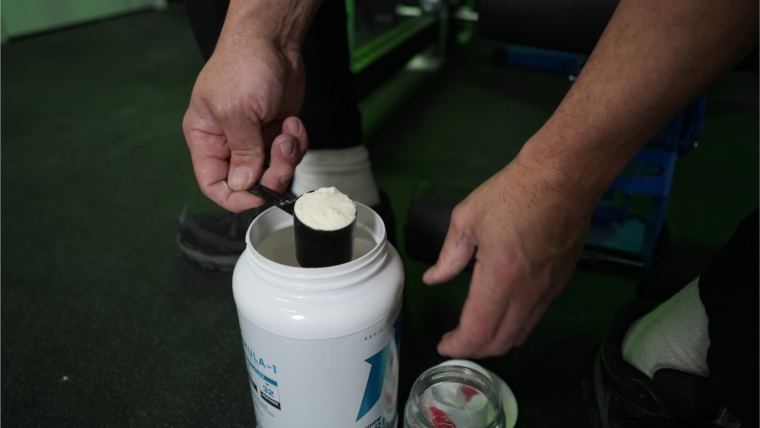
The International Society of Sports Medicine recommends 1.4 to 2.0 grams of protein per kilogram for athletes interested in building muscle mass. (10) For someone who weighs 150 pounds, this equates to a daily protein intake between 95 to 136 grams.
Some evidence suggests that bodybuilders with significant muscle mass may benefit from consuming over 3.0 grams of protein per kilogram of body weight daily to help preserve muscle while losing fat. (10) However, for the average person who works out a few times a week, exceeding 2 grams of protein per kilogram is generally unnecessary.
When Should I Consume Protein Shakes?
Most people who use protein shakes are trying to find a simple way to increase their daily protein intake. It’s a lot easier to drink a shake that requires minimal preparation than it is to prepare a high protein meal.
Contrary to the old adage of the post-workout anabolic window, drinking a protein shake immediately following a workout is not as important as keeping track of your total daily intake. If muscle protein synthesis is your major concern, aim for at least 20 grams of protein every 3 to 5 hours to allow for the greatest muscle protein synthesis to occur. (5)
Protein Shakes FAQs
What is the difference between a whey concentrate protein shake and a whey isolate protein shake?
Whey protein isolate is heavily filtered to remove fat and lactose. This results in a higher protein content per serving and a lower concentration of carbs and fat. Whey concentrate is not as heavily filtered, and includes greater amounts of lactose and fat. Whey protein isolate is considered the gold standard of protein and is typically more expensive.
Is the protein content in a protein shake different from what I would eat in a meal?
It’s completely possible to consume the same amount of protein in a meal as you would in a protein shake. The main purpose of a protein shake is to conveniently boost your protein intake, typically as a snack between meals. Unless the shake is specially formulated with added nutrients and higher calories, it is not meant to replace whole food meals.
Do I need to use a protein shake to gain muscle?
No, this is totally up to each individual. You can consume enough protein to build muscle through whole foods alone. A protein shake may help you reach your protein goals with less hassle. While there are some quality considerations when it comes to different products (such as whey or pea protein sourcing), they are just derivatives of substances found in food.
How many protein shakes a day?
There isn’t necessarily a limit to how many shakes you can drink per day. However, the majority of your protein intake should come from meals, not supplements. Prepared meals contain a variety of other nutrients not found in many protein shakes.
Are protein shakes good for you?
Protein shakes may be good for most individuals. Protein shakes are an easy way to get a lot of protein without needing to cook or eat solid foods. If you struggle to eat enough protein, protein shakes may help you retain muscle mass, build muscle, and strengthen your immune system.
Are protein shakes good for weight loss?
Protein shakes can support weight loss by enhancing muscle retention and growth. Since muscle burns more calories than fat, increasing muscle mass can boost your calorie expenditure. Plus, protein is highly satiating, which can help control appetite and reduce the likelihood of overeating.
References
- Dietary Guidelines for Americans 2015-2020. (2016, December). Cut down on saturated fats – health. Health.gov. Retrieved April 4, 2022, from https://health.gov/sites/default/files/2019-10/DGA_Cut-Down-On-Saturated-Fats.pdf
- Gorissen SHM, Crombag JJR, Senden JMG, et al. Protein content and amino acid composition of commercially available plant-based protein isolates. Amino Acids. 2018;50(12):1685–1695. doi:10.1007/s00726-018-2640-5
- Groen BB, Horstman AM, Hamer HM, de Haan M, van Kranenburg J, Bierau J, Poeze M, Wodzig WK, Rasmussen BB, van Loon LJ. Post-prandial protein handling: you are what you just ate. PLoS One. 2015;10(11):e0141582. doi: 10.1371/journal.pone.0141582.
- Hussain, N., Li, R., Takala, T. M., Tariq, M., Zaidi, A. H., & Saris, P. E. (2021). Generation of Lactose- and Protease-Positive Probiotic Lacticaseibacillus rhamnosus GG by Conjugation with Lactococcus lactis NCDO 712. Applied and Environmental Microbiology, 87(6). https://doi.org/10.1128/aem.02957-20
- Mitchell, W. K., Phillips, B. E., Hill, I., Greenhaff, P., Lund, J. N., Williams, J. P., … & Atherton, P. J. (2017). Human skeletal muscle is refractory to the anabolic effects of leucine during the postprandial muscle-full period in older men. Clinical science, 131(21), 2643-2653.
- Prietl, B., Treiber, G., Pieber, T., & Amrein, K. (2013). Vitamin D and Immune Function. Nutrients, 5(7), 2502–2521. https://doi.org/10.3390/nu5072502
- Sacks, F. M., Lichtenstein, A. H., Wu, J. H., Appel, L. J., Creager, M. A., Kris-Etherton, P. M., … & Van Horn, L. V. (2017). Dietary fats and cardiovascular disease: a presidential advisory from the American Heart Association. Circulation, 136(3), e1-e23.
- Schümann, K., Ettle, T., Szegner, B., Elsenhans, B., & Solomons, N. W. (2007). On risks and benefits of iron supplementation recommendations for Iron Intake Revisited. Journal of Trace Elements in Medicine and Biology, 21(3), 147–168. https://doi.org/10.1016/j.jtemb.2007.06.002
- Wang J, Ji H. Influence of Probiotics on Dietary Protein Digestion and Utilization in the Gastrointestinal Tract. Curr Protein Pept Sci. 2019;20(2):125-131. doi: 10.2174/1389203719666180517100339.
- Jäger R, Kerksick CM, Campbell BI, Cribb PJ, Wells SD, Skwiat TM, Purpura M, Ziegenfuss TN, Ferrando AA, Arent SM, Smith-Ryan AE, Stout JR, Arciero PJ, Ormsbee MJ, Taylor LW, Wilborn CD, Kalman DS, Kreider RB, Willoughby DS, Hoffman JR, Krzykowski JL, Antonio J. International Society of Sports Nutrition Position Stand: protein and exercise. J Int Soc Sports Nutr. 2017 Jun 20;14:20. doi: 10.1186/s12970-017-0177-8. PMID: 28642676; PMCID: PMC5477153.
- Shcherbakova K, Schwarz A, Apryatin S, Karpenko M, Trofimov A. Supplementation of Regular Diet With Medium-Chain Triglycerides for Procognitive Effects: A Narrative Review. Front Nutr. 2022 Jul 15;9:934497. doi: 10.3389/fnut.2022.934497. PMID: 35911092; PMCID: PMC9334743.
